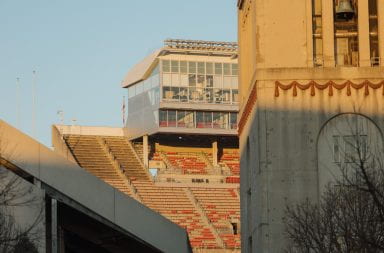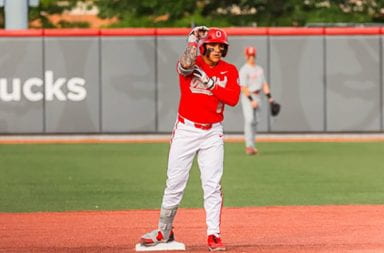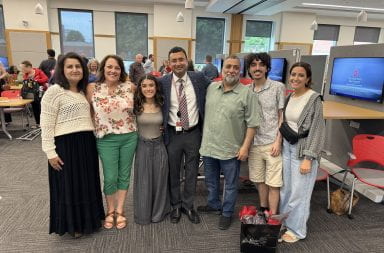
Four Starbucks stores, including the one across from the Ohio Union, were closed due to a strike on one of the biggest promotional days of the year. Credit: Nicole Nowicki | Lantern reporter
Starbucks’ annual “Red Cup Day” — one of the brand’s biggest promotions of the year — was hindered Thursday as Starbucks workers went on strike nationally, shutting down four Columbus locations, including the location across from the Ohio Union at 1784 N. High St.
Starbucks Workers United, the group organizing unionization and striking efforts nationwide, organized the “Red Cup Rebellion” during “one of the most infamously hard, understaffed days for the baristas that work them,” according to the organization’s website.
“By closing stores on a big day like this, it hurts their profits a ton and it just really shows them that we’re not here to play around, and we would really just love it if they tried to work with us,” Reagan Behne, a fourth-year in psychology and a member of the organizing committee for Starbucks Workers United, said.
This is not the first time workers have gone on strike at this location. In March, workers gathered on strike outside the store in response to Starbucks’ policies regarding hour minimums and hour cuts.
On Thursday, workers were able to swiftly shut down the South Campus location due to staffing shortages because of the major promotional day, Behne said. On Red Cup Day, customers receive a free, red, reusable Starbucks cup with the purchase of a holiday drink.
Behne said workers nationwide went on strike to force Starbucks to begin negotiating contracts with its workers. Locally, workers at the campus location are protesting against Starbucks’ policy regarding hour minimums.
Behne said Starbucks has a national policy requiring workers to fulfill a minimum requirement of 12 hours per week while simultaneously cutting hours at shop locations.
“It’s very difficult for students to handle,” Behne said. “A lot of us really need these jobs, but at the same time, we’re full-time students, and when school has to come first, school has to come first.”
Behne said the policy was one of the main reasons why the campus location unionized initially. Workers were expected to find hours at other Starbucks locations if their store didn’t have hours available for them to hit the 12-hour minimum.
“This is completely unfair in a store like ours,” Behne said. “A lot of the workers don’t have cars. They’re college kids. They’re in dorms, they walk everywhere, taking buses — it’s very unlikely for them to go to another store and find work.”
Behne said while their wages go up, many stores experience hour cuts, making it difficult for workers to find hours at their store to fulfill the 12-hour minimum expected of them. This tendency makes it hard for workers to make more money when they’re experiencing a decline in hours available.
“Starbucks has a tendency to raise wages and broadcast that, but they don’t show that they actually cut our labor hours, so we actually don’t make any more money, it feels like,” Behne said.


